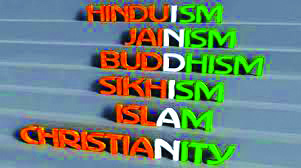
John Dayal
The Church in India finds itself shaken today, trying to negotiate its way between the competitive political space with Muslims and Hindus in distant Kerala, rampant persecution by non-state actors in the north and central states, its resources constricted by increasingly vindictive state policies, and its institutions, its social face for two centuries, staring at an uncertain future in many regions.
This is perhaps a moment of its greatest challenge since independence, a time to conserve its strength, consolidate its unity and reach out to friends in civil society for support. Instead, some church leaders find themselves rapidly losing allies, even as they make new enemies, and widen the internal fractures of dogma, doctrine, racialism, and caste. The struggle of women against a patriarchal religious leadership, gathering pace in recent years, gives the crisis just that critical momentum to pitch it to the international stage for everyone to see.
At risk is the secular image of Kerala, and the history of communal peace, if not genuine amity, that has marked relationships between Christians and their larger Muslim and Hindu neighbours.
Hindus at 54.7% of the 3.34 crore population, or 1.82 crore in the 2011 Census, remain the dominant community in Kerala, followed by Muslims with 26.5% (about 88 lakh) and Christians at 18.3% (61 lakh). The 2021 decadal census has been delayed in the Covid lockdowns, but experts say the population may be close to 3.58 crore at a growth rate of about 7.2%. Christians fear their numbers may have come down drastically with family sizes shrinking from the post-Independence figures of six or more children per family to three or less now.
No one admits to being Islamophobic, but the caste-ridden Christian community finds itself more at ease with its Hindu neighbours than with the Muslims, who before the discovery of oil in west Asia and the job boom, were economically less well off. Muslims are also more active politically now, with a presence in the Left Democratic Front led by the CPM, as also in the Congress coalition.
Christians were a vote bank for Congress till late. A relationship has firmed up between political leaders who depend on the patronage of the hierarchy for votes, with the promise of safeguarding the interests of the church.
The Marxists, who may perhaps have Islamophobia in their ranks too, lost the plot in 1958 in their first elected government led by Comrade EMS Namboodiripad angered vested interests with his move against church-owned educational institutions. The outrage led to his dismissal by the Jawaharlal Nehru govt in New Delhi.
The church establishment remembers this, even if some individuals do not. Recent fears are of state funds by way of scholarships and development grants going largely to the Muslims. There is some truth in this, as the Marxist govt deviated from national norms saying more funds should go to the Muslims which were more underdeveloped. They retracted, but the damage had been done.
This was the situation when Syro Malabar Catholic Church Bishop Mar Joseph Kallarangatt of the diocese of Pala told his congregation that jihadists were not only seducing Catholic women but were also making the youth drug addicts.
Drugs are a real menace in Kerala. But threats to communal amity are a bigger threat. Reactions came from Chief Minister Pinarayi Vijayan, women’s groups, priests, and human rights activists. Muslim groups staged a march to the bishop’s residence.
Most critics say the bishop used a dog whistle which accentuated the Islamophobia that the BJP and the Sangh are assiduously fanning as they seek a foothold in this state.
Church leaders sort of laughed it away, saying the bishop was warning against drugs. It cut little ice even with the many other denominations and Rites in the state.
The Metropolitan of the Mar Thoma Church expressed his disapproval, deriding attempts to aggravate communal divides in Kerala. Metropolitan Yulios Geevarghese of the Malankara Orthodox Church followed suit, demanding a public apology from Kallarangatt.
The women groups, including those of the nuns who have been waging a high publicity guerrilla war on sexual abuse in the church, have scored a point, charging the church with coining Love Jehad to control women’s agency, and specially their sexuality, while remaining blind to evil of domestic violence.
Sexual abuse remains the elephant in the room, together with caste discrimination. Dalit Christian groups who have waged a brave battle against the Union govt in Supreme Court to be given the protection of the law (as given to Dalit Sikhs and Buddhists) recently sued the Catholic church in high courts and urged Pope to recognise them as a full-fledged Rite on the pattern of the two Syrian Rites.
Nuns in the Kuravilangad Convent, with Sr Anupama opposed the attempt of a priest to “preach communal poison against Muslims” in the Sunday worship in which he repeated the call for an economic and commercial boycott of Muslim businesses.
Smaller Christian groups outside Kerala and especially in MP and Chhattisgarh suffer social discrimination, sometimes denied even rations and water in villages. The violence by radical Hindutva activists seems routine and is often in the police’s presence . The victims feel they have been abandoned by the powerful churches of Kerala.
Cardinal Cleemis, the head of the small Syro Malankara Catholic Rite, has now launched a firefighting exercise, organising the first of an inter faith meetings. It remains to be seen if things will ever be back to normal.
In a supreme irony, the govt of India in its replies in Parliament has said there are no instances of the so called Love Jehad.
(John Dayal is an author, editor, occasional documentary film maker and activist. He lives in New Delhi.)
